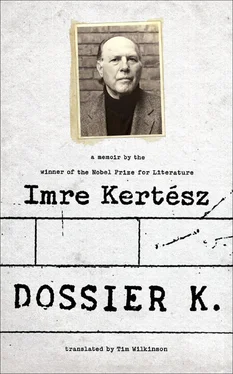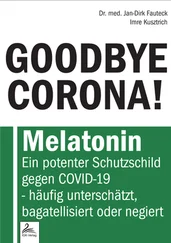The two may be closely interlinked.
In what way?
We have already spoken about the paradox that God may be found readily in a dictatorship, whereas in a democracy there is no longer any metaphysical excuse: the individual in his own right struggles with his freedom.
You are not suggesting that man is transcendent, his non-worldly life is a mere political issue, are you?
The issue is not political, but you pose it in two different ways in the two political systems — in the one as the sole option, in the other as one of the options.
You have used the word “myth” twice in connection with Auschwitz, and in a different sense on both occasions …
Spuriously so the second time; I noticed that myself.
By “myth” one usually denotes some fraudulent ideology, doesn’t one?
I use the word in its original signification, in the sense of a total loss of values, in the way in which the mariners of ancient Greece on an island heard a harrowing cry of “Great Pan is dead!”
You clearly heard Nietzsche’s call of “God is dead!”
It’s true, we have to start all over again, from the beginning.
Is that really what Liquidation is about?
That is what all my works are about, isn’t it?
And now that the trilogy of novels has expanded into a tetralogy, do you feel that your work is complete?
Trilogy, tetralogy — those terms say nothing to me. I just wrote the novel that had to be written, which always seemed to me just as fragile as my own stamina, even my own continuance. To employ an Adornoesque paraphrase: “To write a novel cycle after Auschwitz is barbaric.”
So how did the term “trilogy”—designating by that the novels Fatelessness, Fiasco, and Kaddish for an Unborn Child— become quite so commonly employed?
I have no objection to it, whether it’s a trilogy or tetralogy — that doesn’t change anything. The truth is that with my work everything is connected with everything else, but those connections arise by an organic process without my having made them fit some premeditated literary box of tricks. They come out so unintentionally that I often surprise myself. Those are the rare lucid moments when one suddenly becomes aware that every line, every sentence one writes is operating in the force field of some sort of coherence from which we are able to surmise the presence of a more solid reality, of our genuine existence, lurking at the very bottom of our existence. That’s sufficient for me to turn my back on the trilogy with a shrug of the shoulders.
Liquidation is anyway the first of your novels to be written in its entirety after the change in regime, indeed to use that as its subject .
It chose freedom as its subject.
Yes, but its world is still very much a typical late-Kádárera world, I’d be interested to know where you drew your material from, given that you were then living very much in seclusion, not known in intellectual circles and, to my knowledge, you played no active role in the “democratic opposition,” not putting a signature to any of the protest letters of the period …
They didn’t get to me: it wasn’t just them who didn’t know me, but I didn’t know them either.
So you would have signed them?
Most likely.
Out of sympathy?
Out of cowardice; so they would not consider me a coward.
That’s a good one! Would you not have agreed with them?
Well, as far as their pragmatism was concerned — not at all. I was no fan of the reform Communists because I never thought that Brezhnev could be reformed, whereas there was no way I could imagine “socialism with a human face” when there were still “Soviet units temporarily stationed in our country.” Whether it has a human face or not, socialism is malformed and repulsive. And then on top of that — and this is where it gets pickier — there was an overripe … an overripe playfulness, what I might call a latent cynicism, about the whole thing, as if people on both sides were respecting, as it were, well-known “rules of the game.” The regime, the “establishment,” displayed its amenability — the fact that it was at least respecting a liberal minimum — to advantage. Equally, though, the totalitarian power could have switched to “harsh methods” at any time. The chance that a person may be demeaned and become a scummy tool of the authority during the tortures, however, is for me a disproportionately high price for nothing.
And if I were to probe you on what your political convictions are, or do you in fact hold any such views …
Certainly I do. The trouble is just that its reality has passed, like that of, say, the Jasperian species of democracy or the liberal conservatism of an István Széchenyi.
Is it possible you are really sympathetic to conservative ideals?
Why not? If God existed, I would be pious. What is more, if there were a genuine conservative party in Hungary — which would probably constitute an even greater miracle than if God were to exist — I would be a sincere supporter.
Are you sure about that?
No, but I am sure that the prerequisites for a completely normal political life in Hungary are still only at an early stage.
What do you mean?
That the country needs, at long last, to get over the trauma caused by the change in regime: it needs to accept freedom — or more than that, rejoice in it.
Perhaps it’s not as easy as that. After all, the new citizen in you crumbled the instant you caught sight of a customs officer’s cap …
You’re referring to my short story “Sworn Statement.”
Yes, and that reminds me of several non-literary questions that I am unable to keep to myself. For instance, did you ever think … no, I need to take a longer run-up. You, as a person who survived Nazi concentration camps through “the trust you placed in the world”; who spent the Stalinist era in a horrific nightmare state; who — as Galley Boat-Log attests — during the decades of the Kádár regime came to know the depths of depression — did you imagine that the occupation of Hungary jokingly termed “socialism” would ever come to an end and you would regain complete personal freedom?
There’s no need to take such a deep breath! In my opinion this conversation would not be worth anything if it had not become clear by now that in essence, if not explicitly, this was exactly what I was thinking of every day.
Literally?
Let’s say subcutaneously so; unbrokenly in at least a tacit sense … as if something were continually prickling me.
So you weren’t surprised by the change of regime?
If that’s what you infer, then my answer was not good, or at least not clear enough. I lived as if the regime might come to an end at any time — and I was quite sure about that, by the way, because life will only temporarily tolerate its own denial — it was just that I couldn’t be sure that I myself would live to experience it. At the time, I had a favourite saying from Kafka: “There is plenty of hope, no end of hope, only not for us.”
Couldn’t you find anything more reassuring?
It very much suited the daily spiritual exercises.
Would you care to relate how, as an inhabitant of Budapest, you lived through your second liberation?
Not so very differently from the first one, in Buchenwald. Liberations almost always run along much the same lines. There are certain signs, then all at once the skirmishing of struggle is picked up, then eventually, after a momentary lull, someone shouts out “We’re free!”
Were you surprised? Or did you marvel at it? Or …
Читать дальше












